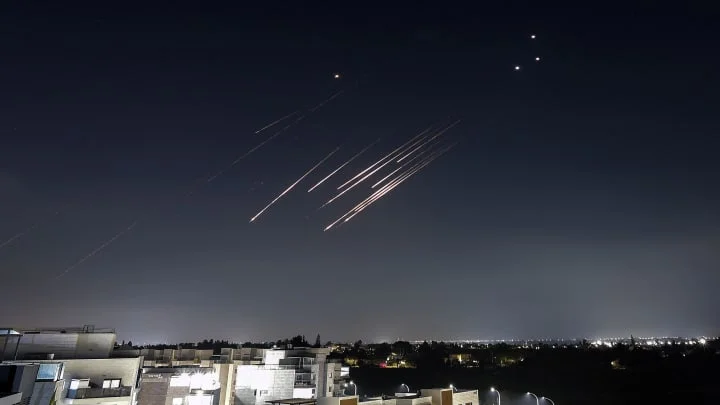Iran launched a powerful missile strike on the Al Udeid U.S. Airbase in Qatar on Monday, following through on its threat to retaliate for recent U.S. airstrikes targeting Iranian nuclear facilities. The strike, which Iran’s military described as “devastating and powerful,” rattled the Qatari capital with multiple explosions, although no U.S. personnel were reported injured or killed, according to American officials.
Iran Retaliates for U.S. Bunker-Buster Bombings
The attack came just days after the U.S. deployed 30,000-pound bunker-buster bombs on Iran’s underground uranium enrichment sites—an aggressive escalation backed by Israel in their ongoing offensive against Tehran.
Despite a stern U.S. warning against retaliation, Iran preemptively notified Washington via diplomatic channels and informed Qatari officials of its intentions, according to a senior regional source speaking to Reuters.
Qatar, Bahrain Shut Airspace as Missiles Fly
In response, Qatar temporarily closed its airspace, citing resident and visitor safety. Its Defense Minister confirmed that Qatari air defenses had intercepted missiles targeting the Al Udeid base, the largest U.S. military presence in the Middle East.
Neighboring Bahrain also closed its airspace, while the U.S. Ain al-Asad base in Iraq activated its defense systems amid growing fears of a wider conflict. The main U.S. base in Syria was also placed on full alert.
Israeli Strikes Target Iranian Political Infrastructure
Simultaneously, Israel expanded its military campaign, striking Evin Prison in Tehran—long used to detain political prisoners and foreign nationals. Israeli Foreign Minister Gideon Saar posted footage of the prison explosion, captioned with “Viva la libertad!” signaling a direct blow to the Iranian regime’s internal repression system.
Israel’s military claimed responsibility for additional strikes on Revolutionary Guard command centers in Tehran. Defense Minister Israel Katz said the attacks targeted “regime repression bodies” in the heart of the Iranian capital.
Civilian Panic and Power Outages in Tehran
The intense airstrikes over 10 consecutive days have led to a mass exodus from Tehran, a city of 10 million residents. Iranian media reported attacks on infrastructure, including an electricity feeder station, leaving parts of the capital in darkness.
Footage from Iran’s IRIB state TV showed rescue efforts at Evin Prison, with emergency responders recovering the injured. Iran’s judiciary outlet, Mizan, confirmed ongoing efforts to ensure the safety of detainees.
Trump Hints at Regime Change, Iran Vows to “End the War”
Former President Donald Trump reiterated that the U.S. mission is to dismantle Iran’s nuclear capabilities, not initiate full-scale war. However, in a fiery social media post, he hinted at a regime change, triggering furious rhetoric from Iran.
“You may start this war, but we will be the ones to end it,” said Ebrahim Zolfaqari, spokesperson for Iran’s elite Khatam al-Anbiya military HQ, in a chilling video message.
Oil Prices Dip Despite Gulf Threats
Despite concerns that Iran might disrupt global energy flows, oil prices surprisingly dropped by 4%, suggesting that traders are skeptical about Iran targeting Gulf oil shipments.
Iran’s Succession Plans Intensify Amid Crisis
With tensions peaking, Iran is quietly preparing for succession. Sources revealed that discussions are underway to replace the aging Supreme Leader Ayatollah Ali Khamenei. His son Mojtaba Khamenei and cleric Hassan Khomeini, the late Ayatollah Khomeini’s grandson, are reportedly leading contenders.
Conclusion
The missile strike on Al Udeid signals a dangerous new chapter in U.S.-Iran tensions, dragging regional powers like Qatar, Bahrain, and Israel deeper into the crisis. As diplomatic backchannels remain open, the world watches anxiously to see whether this spiraling conflict can be contained—or if the Middle East is headed toward full-scale war.




